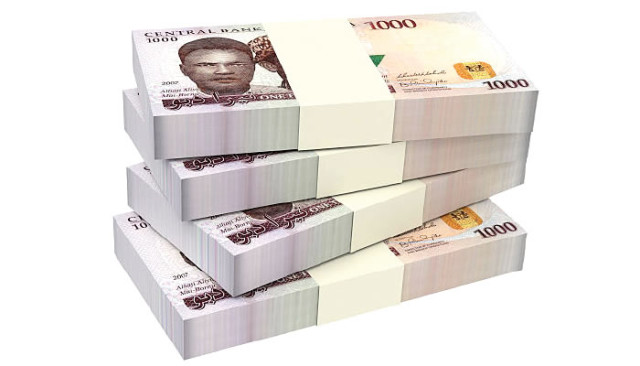The naira ended the past week weaker than the week before, depreciating by 0.14% week-on-week to reach 1,532.34/$ in the Nigerian Foreign Exchange Market.
This decline occurred despite the naira initially rebounding to a four-month peak on the first trading day, closing at 1,518.88/$. Subsequently, it fell to 1,530.25/$, then further to 1,533.11/$ before gaining some strength to finish the week at 1,532.34/$ at the official market.
Over the week, the highest exchange rate for the naira was 1,538/$, while the lowest was 1,515/$ on the NFEM. In the parallel market, the currency traded between 1,535.00/$ and 1,544.00/$.
Analysts have emphasized that the intervention by the Central Bank of Nigeria and improvements in foreign exchange liquidity are crucial for stabilizing the naira in the FX market.
Cowry Assets Management Limited, in its weekly market analysis, indicated that the naira exhibited mixed trading across markets, appreciating slightly by 0.06% week-on-week to close at 1,544.00/$ in the parallel market, while it closed in the negative zone at the official market.
“The divergent movements reflect ongoing supply-demand imbalances and the evolving FX liquidity landscape,” remarked the analysts, who also noted that the naira seems poised for further gains as rising oil output and elevated prices boost dollar inflows, potentially sustaining the current pace of reserve accumulation.
Recent data from the Nigerian Upstream Petroleum Regulatory Commission indicated that average daily crude oil production (excluding condensates) increased by 3.6% to 1.51 million barrels per day in June 2025, up from 1.45 mbpd in May.
This marks the first instance in five months that Nigeria has met its OPEC production quota, signifying improvements in operational efficiencies and security around major oil-producing assets.
AIICO Capital Limited, in its weekly analysis, noted that the CBN had made intermittent interventions in the FX market last week.
It stated, “Dollar sales early and late in the week contributed to maintaining relative stability.
The naira closed at 1,532.34/$, down 13.6 bps week-on-week. Reserves increased by $422m to $37.85bn” as of Thursday, rising from $37.43bn in the previous week.
The naira is anticipated to maintain its current range amid improved liquidity, while markets assess the potential FX impacts of the Monetary Policy Committee's decisions starting Monday (today).
Analysts are divided regarding the MPC's upcoming benchmark decision. Doves advocate for a modest rate cut, citing cooling inflation, a more stable naira, and signs of reform progress.
Conversely, hawks caution that premature easing could undermine the gains achieved through FX reforms and the slowing inflation rate, especially given ongoing food supply disruptions and global risks.
“For now, traders are adjusting their positions, but the true signal will arise from the tone of the communique,” Comercio Partners stated.




















